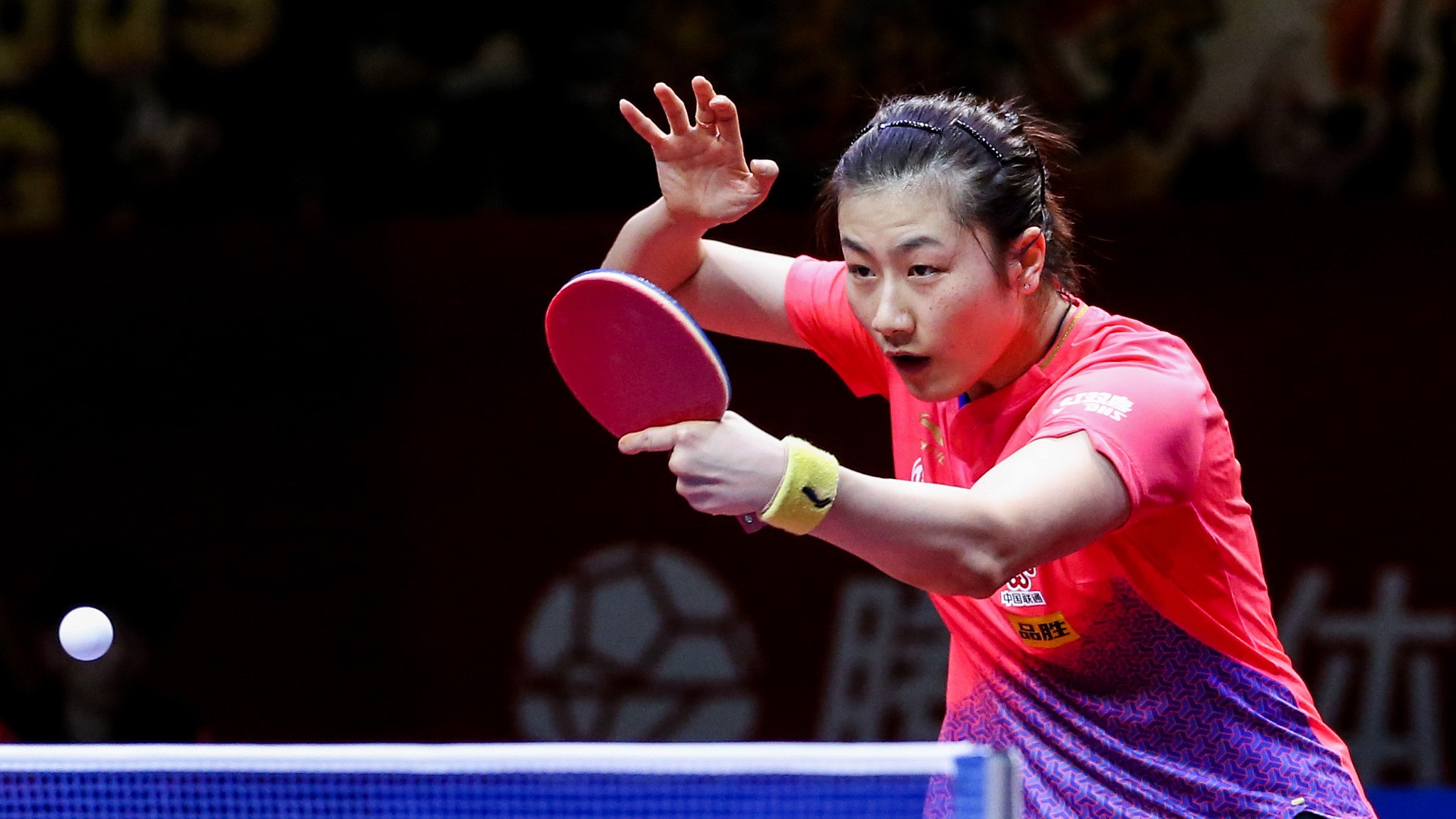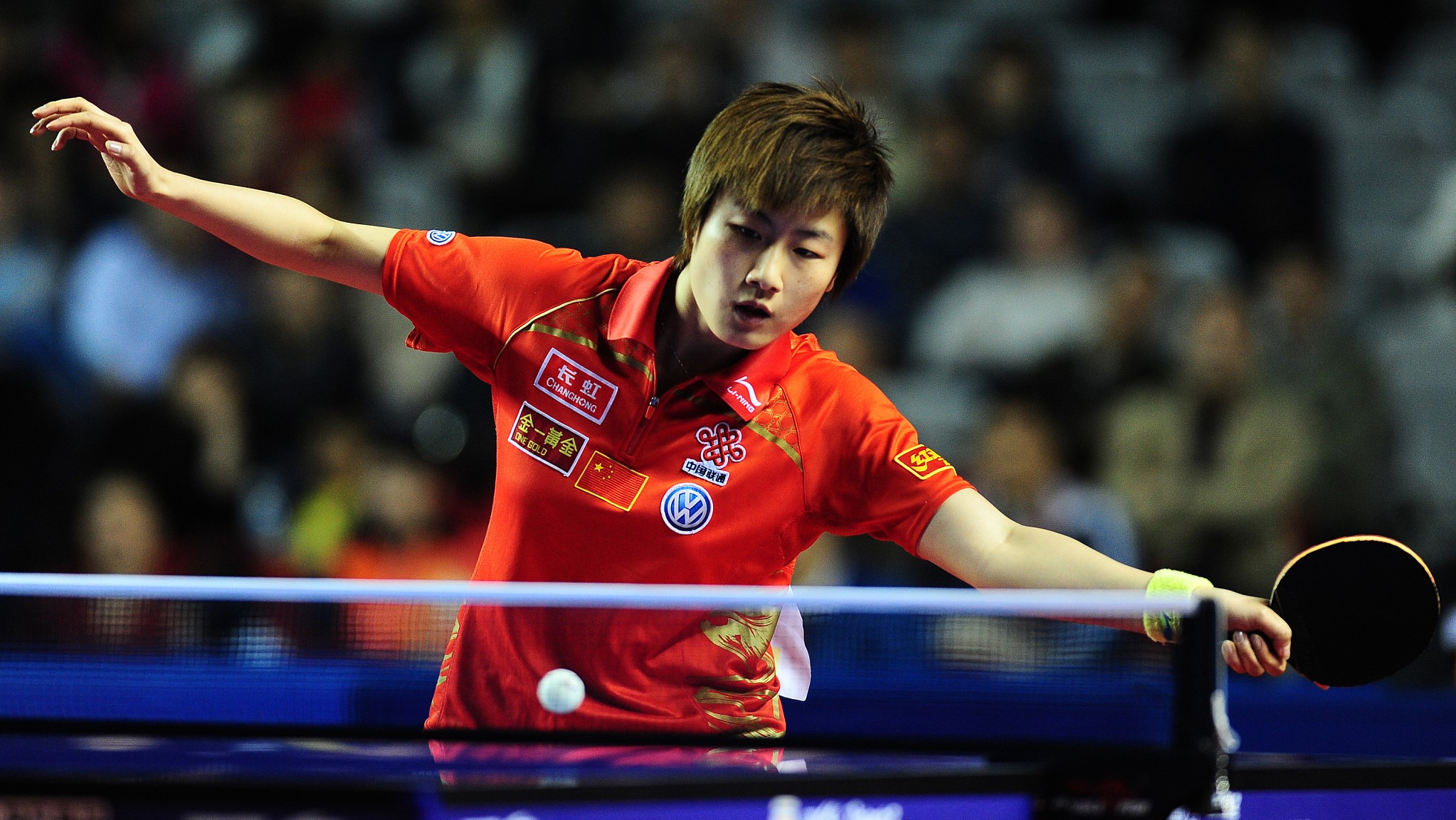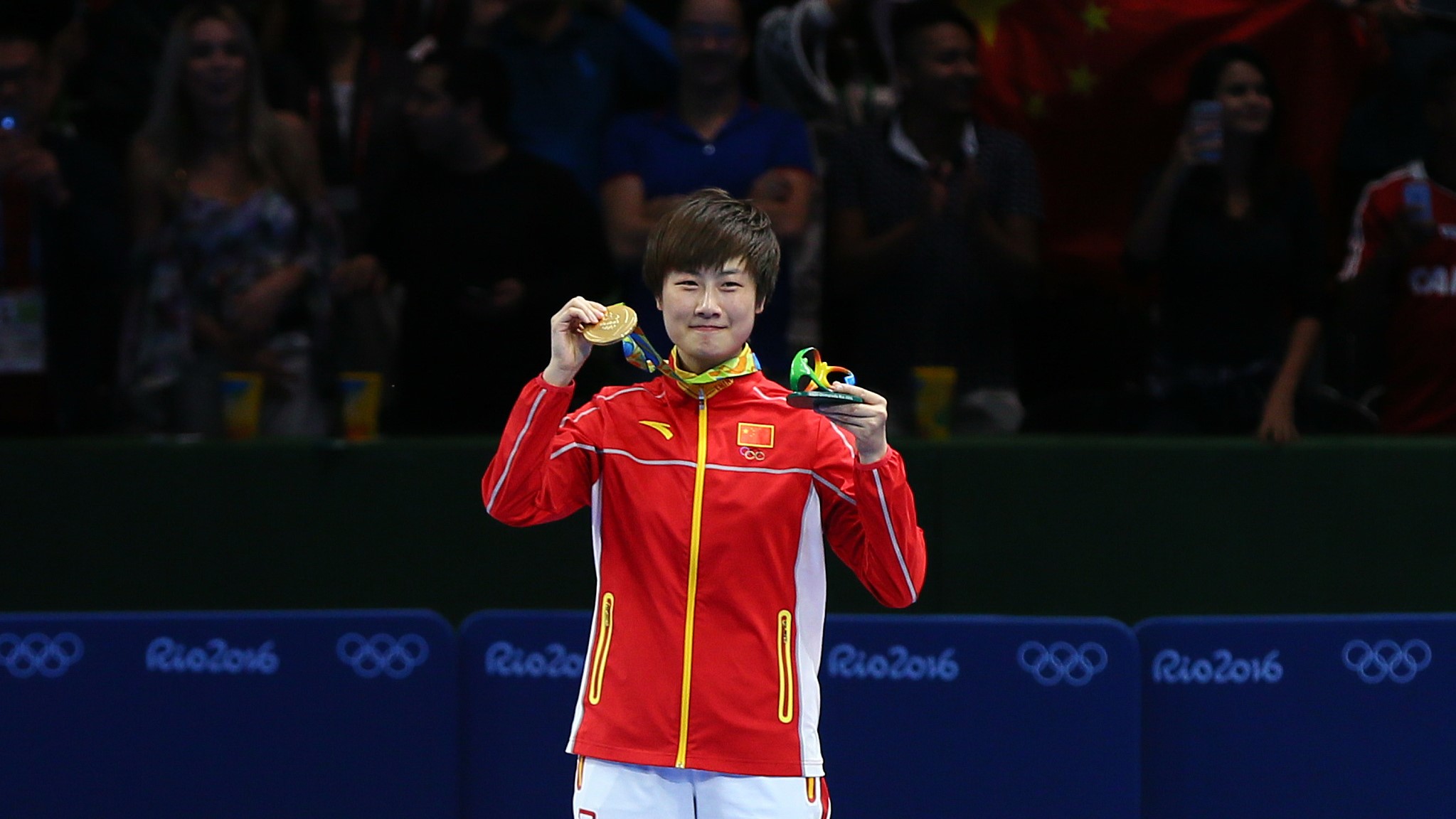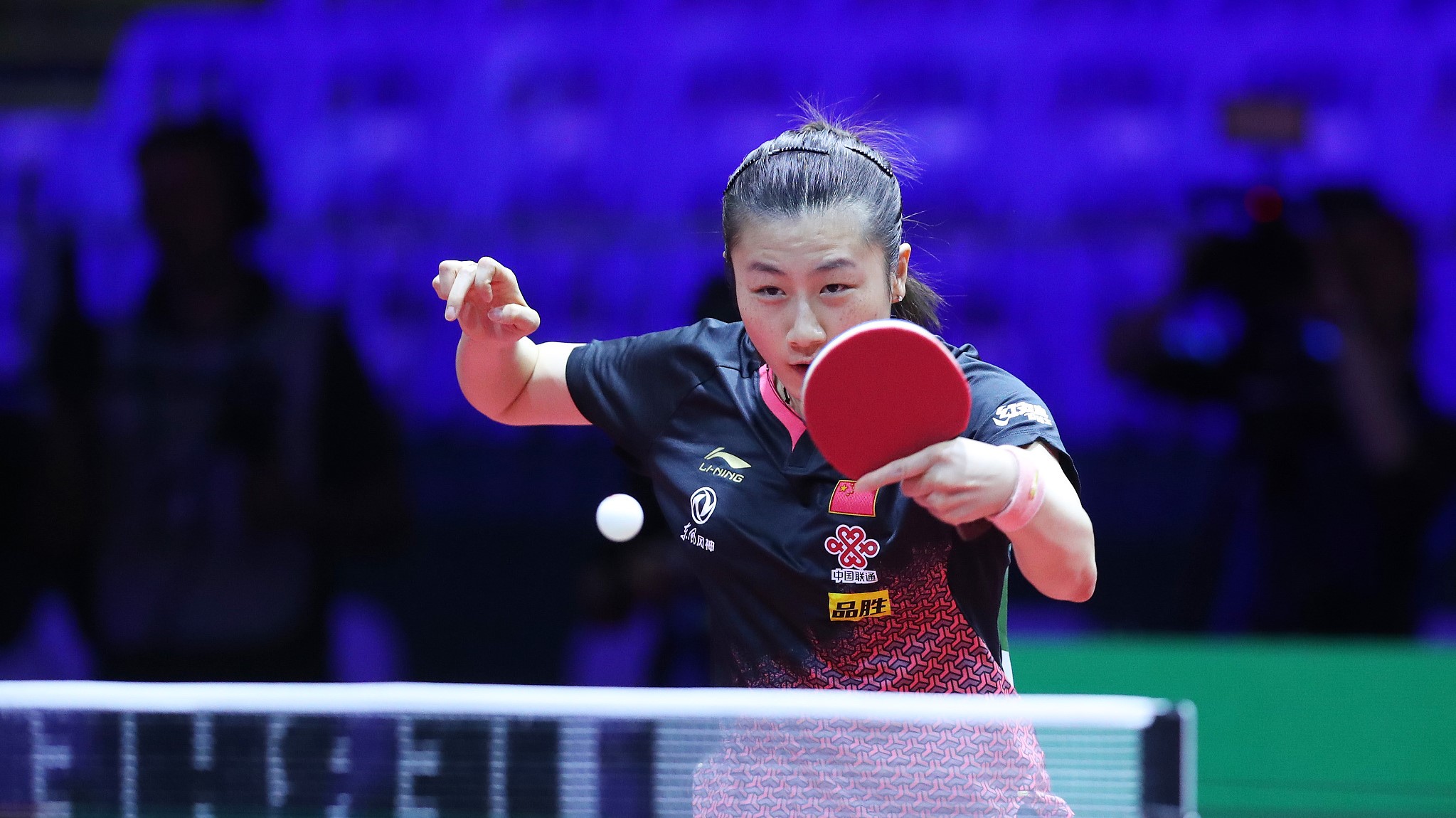
Ding Ning, Chinese table tennis grand slam champion /CFP
Ding Ning, Chinese table tennis grand slam champion /CFP
Ding Ning, 30, is one of the most experienced members of the Chinese national table tennis team. She won a title in every of the top 3 table tennis events – Summer Olympics, World Championships, and World Cup – in the world; she went through the most painful loss; she is still playing after all this. Why? In an interview on social media platform on Tuesday, Ding gave her answers.
Ten years ago, Ding attended the World Team Table Tennis Championships in Moscow for the first time as a leading player of the Chinese national team. However, she lost to Feng Tianwei 3-2 in the first match of the Women's team Final. What made it worse was that Ding once led 2-0 in the competition. Having started on the wrong foot, China lost to Singapore 3-1 eventually in the Final.

Ding Ning of China in women's singles table tennis semifinal match in the ITTF–ATTU Asian Cup against Feng Tianwei of Singapore in Guangzhou, south China's Guangdong Province, March 27, 2010. /CFP
Ding Ning of China in women's singles table tennis semifinal match in the ITTF–ATTU Asian Cup against Feng Tianwei of Singapore in Guangzhou, south China's Guangdong Province, March 27, 2010. /CFP
"My memory of that year (2010) is grey," said Ding. "But looking at it after 10 years, I feel I have gone through a lot during this period of time. I grew from a young rookie to become a table tennis player who has realized all of her dreams."
"I was very excited (about) playing any match 10 years ago. I enjoyed the challenges. Whenever I surpassed myself or overcame a new difficulty, I felt the excitement that I wouldn't trade it for anything."
"I was doing better and better since 2015, but my role in the team started to change too. First, I was not a rookie anymore; then I became one of the big girls; then I was a core member of the team and even captain of China. The load on my shoulders kept growing, and people expected me to do more, to do better."

Ding Ning of China celebrates after winning the women's singles table tennis gold medal in the Summer Olympics in Rio de Janeiro, Brazil, August 10, 2016. /CFP
Ding Ning of China celebrates after winning the women's singles table tennis gold medal in the Summer Olympics in Rio de Janeiro, Brazil, August 10, 2016. /CFP
Ding defeated her compatriot Li Xiaoxia in the women's singles final in the Summer Olympics in Rio de Janeiro in 2016. That victory added the last title she needed to become another grand slam champion table tennis player. However, Ding did not feel the same excitement anymore.
"I think my prime is in 2015, 2015, and 2017," said Ding. "I either won it or at least made the final in any contest I played. But I became confused for quite a while after that. I did not know if I should continue to play. I did not have anything to support me to move on. After 2016, I found it harder and harder to enjoy playing. The matches became too 'normal' to me. I ceased to feel the excitement of victory like I did when I was younger. I used to be so happy when I exceeded the expectations of myself and my teammates. I won many titles in 2017, including the World Championships, after I became a grand slam champion. I was still thrilled, but not as much as I sued to be."
Many successful Chinese table tennis players chose to retire shortly after their prime time – Deng Yaping, Wang Nan, and Zhang Yining all did so.

Ding Ning of China in women's singles quarterfinal match in the ITTF World Table Tennis Championships against Miu Hirano of Japan in Budapest, Hungary, April 25, 2019. /CFP
Ding Ning of China in women's singles quarterfinal match in the ITTF World Table Tennis Championships against Miu Hirano of Japan in Budapest, Hungary, April 25, 2019. /CFP
Ding did not. She believed it's her responsibility to help younger teammates to grow by staying in the national team as an example. Nonetheless, the introduction of new table tennis balls to international competitions almost became a turning point in Ding's career. "My playstyle back then was not progressive enough to overcome the impact of the change. I was also standing too high at that time, any underperformance could be too much, and people said I should be able to overcome the difficult," said Ding.
"I remember I lost to a kid from second-team in either 2018 or 2019. Was it 3-0? I found it very hard to accept, though everyone around told me it's okay. How did I allow that to happen? I think on many occasions, you are just too disappointed at yourself to let it go."
Ding believes that during the process of reforming, no one knows what's coming. From players to coaches, everyone is trying to summarize gains and lessons. "What I had before carried me to the top, but I need to change them, make major adjustments, or build something new to move on. That takes time."
Ding said, deep down in her heart, she still keeps that passion for table tennis. "I don't want to lose it. It's very precious and important. So many people got my back in all these years, and they gave me power. I want to return that favor by showing them the best side of me."

